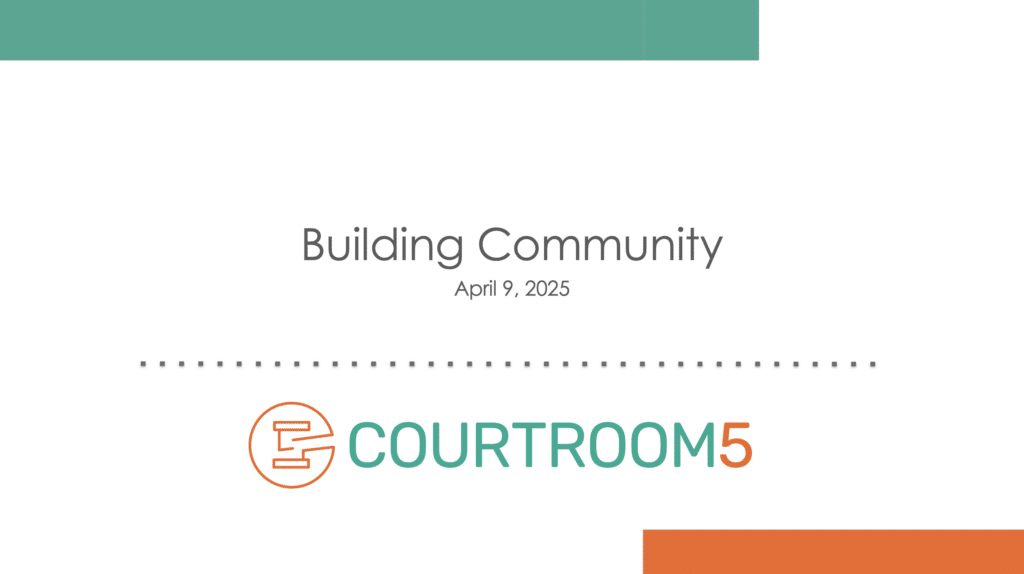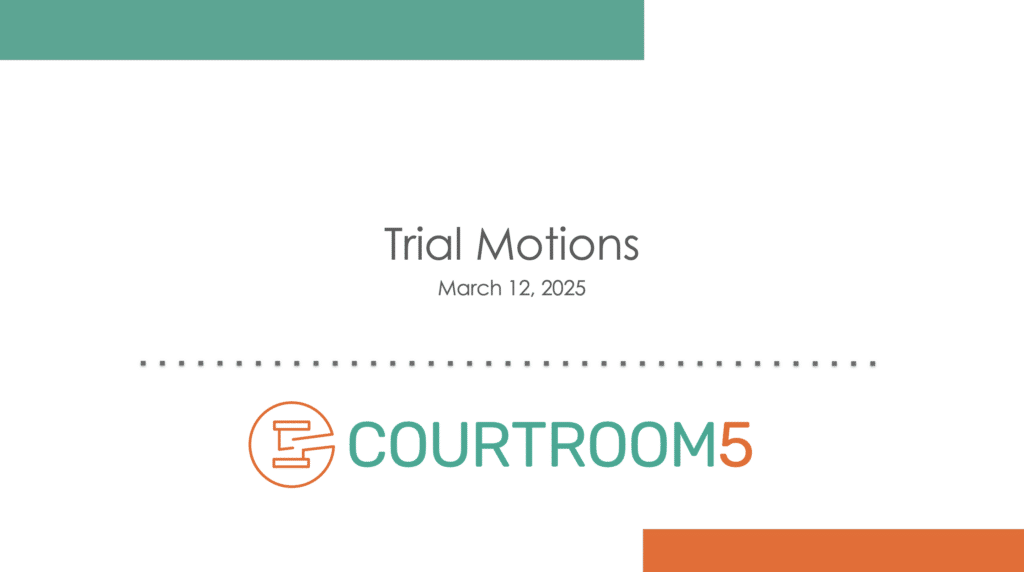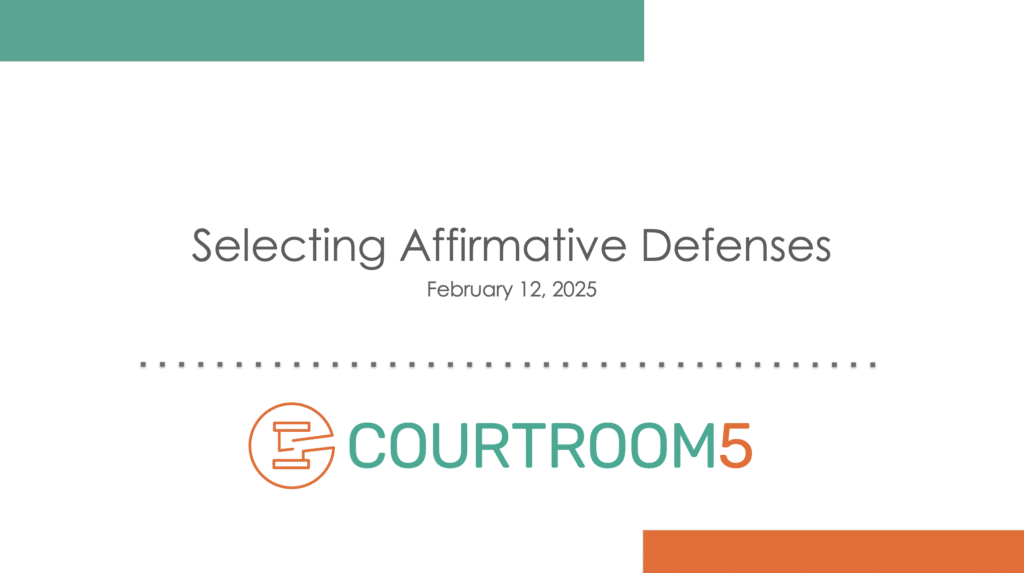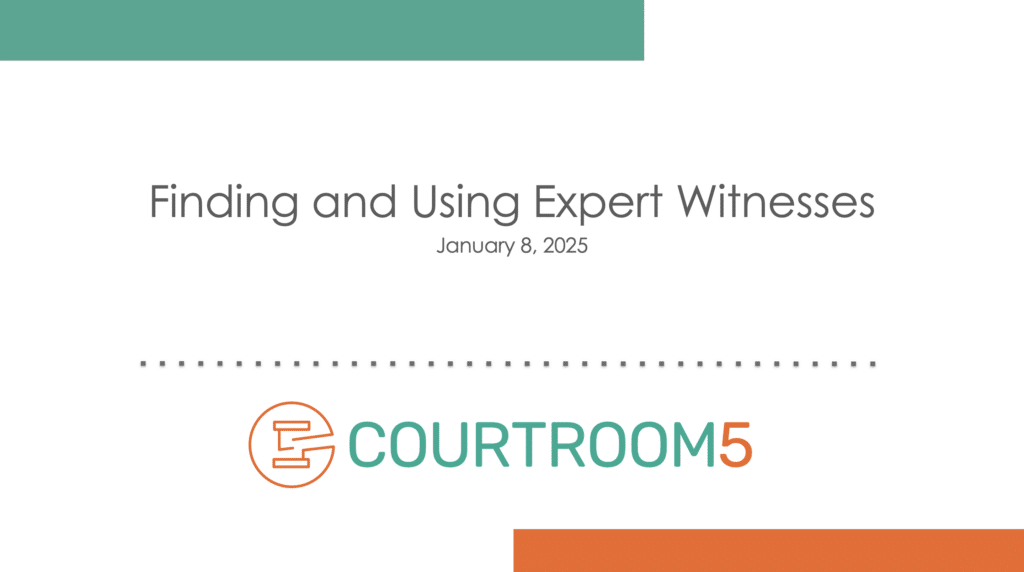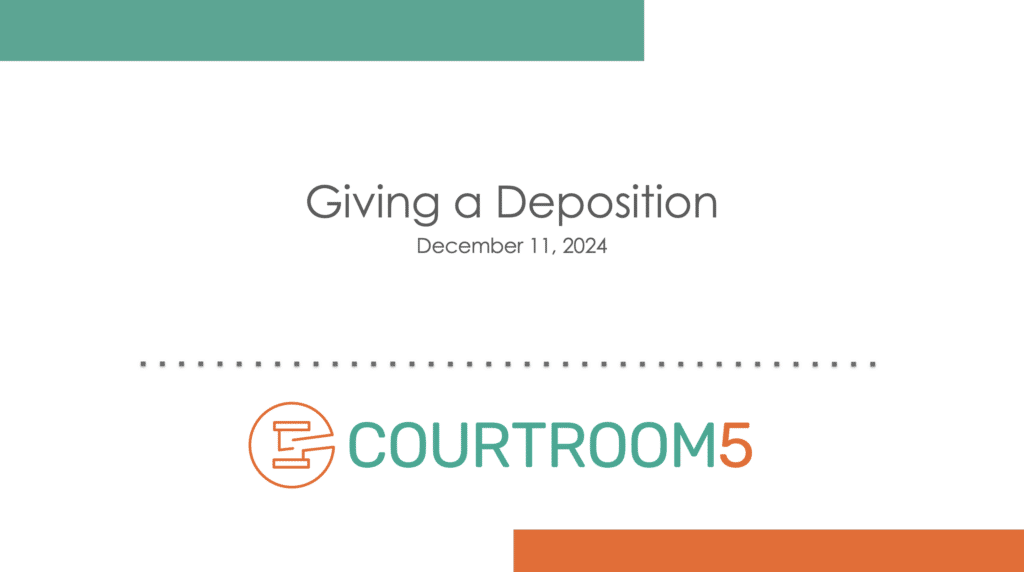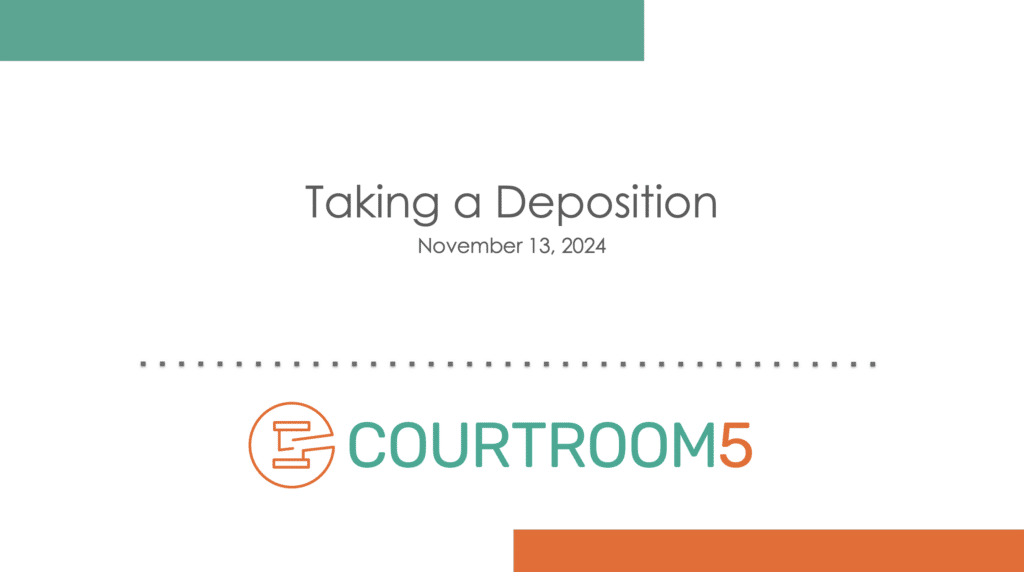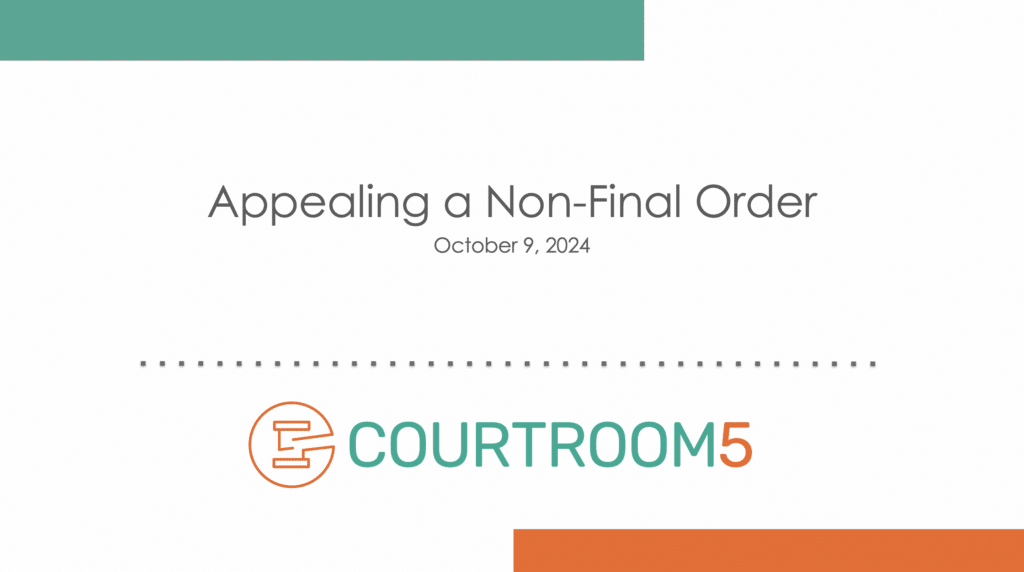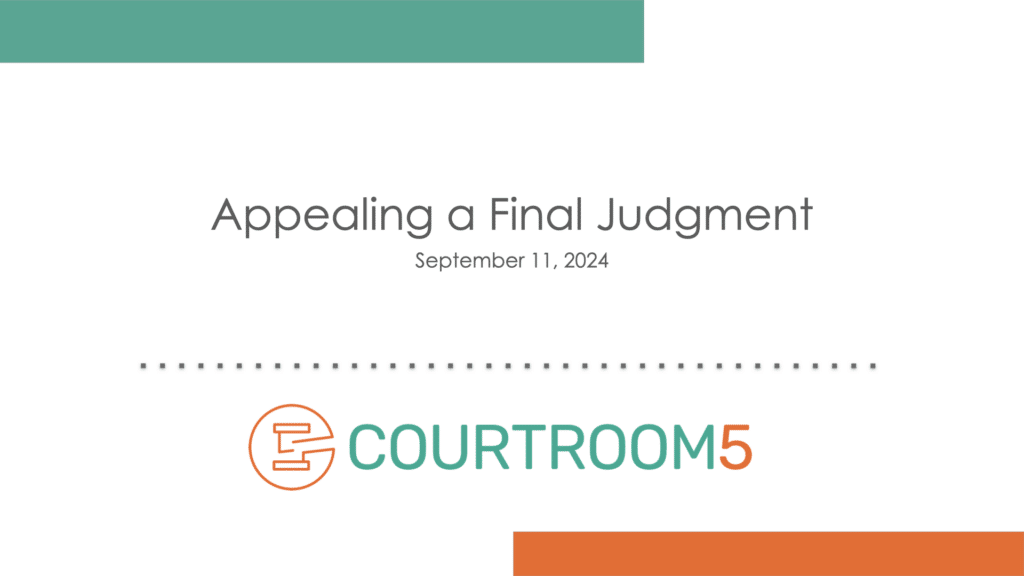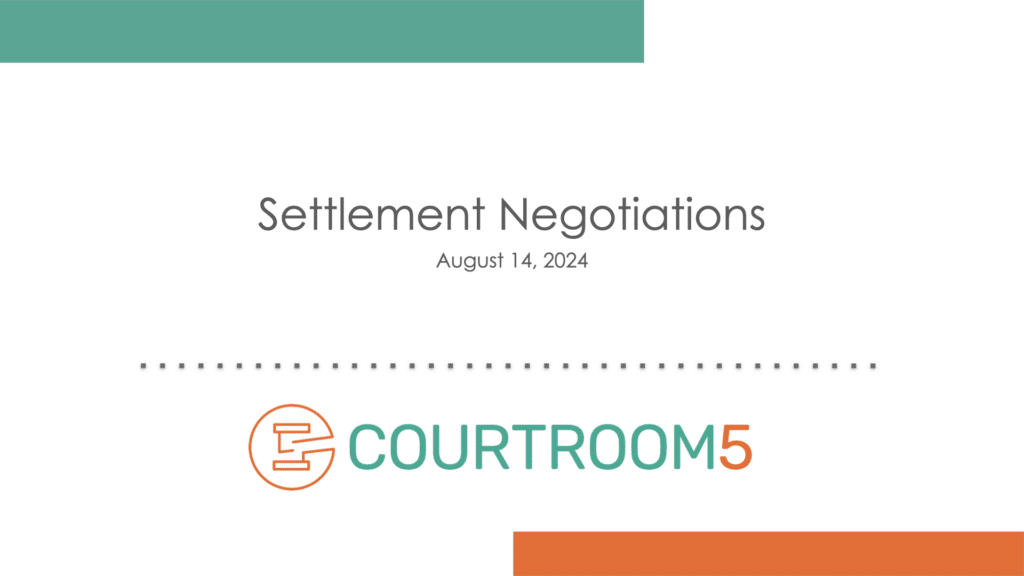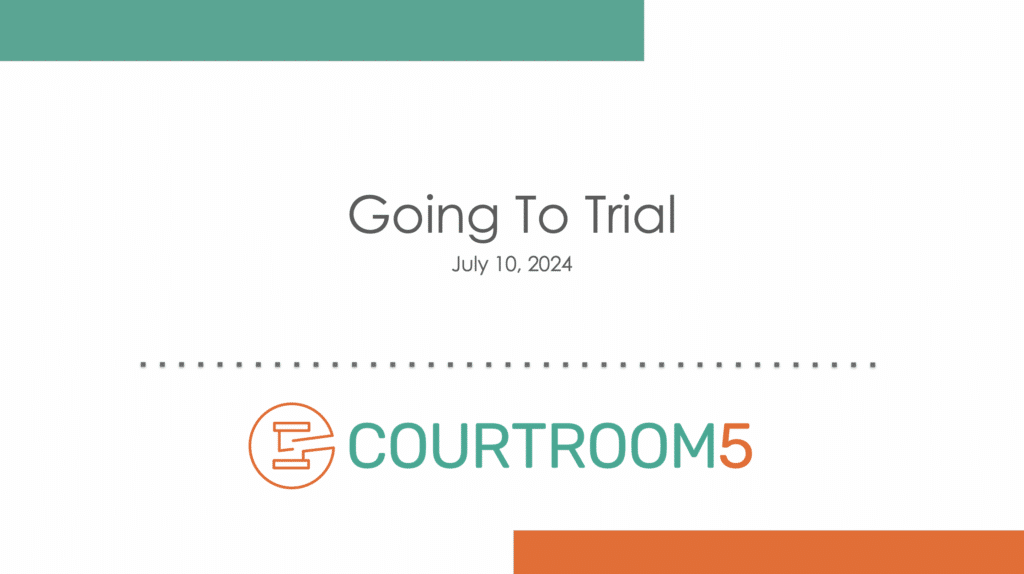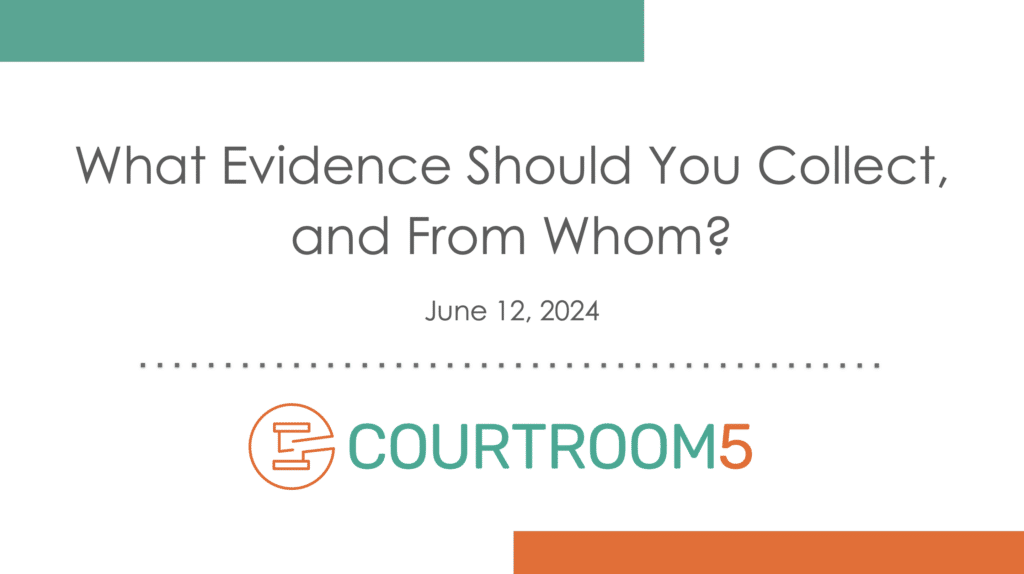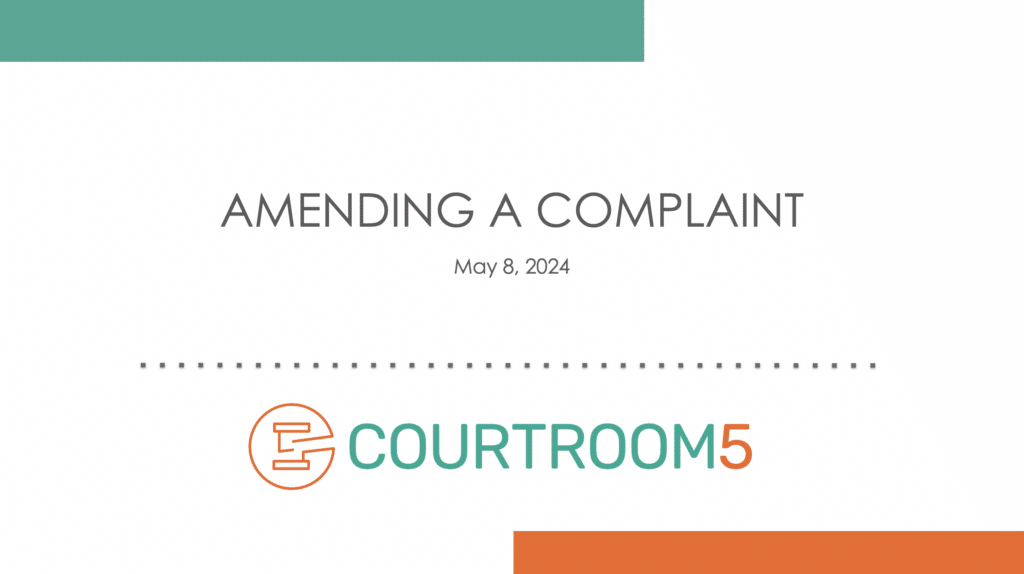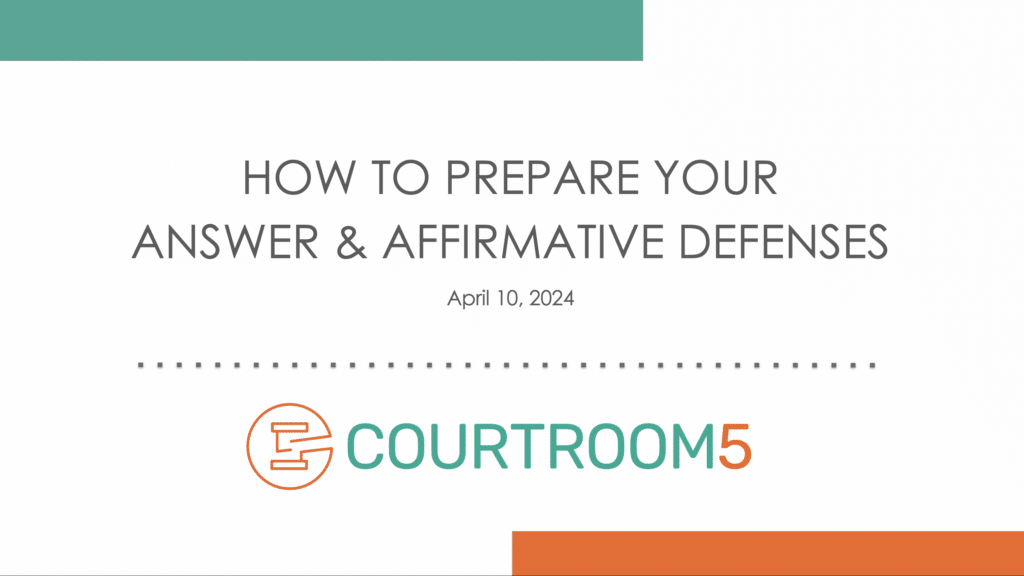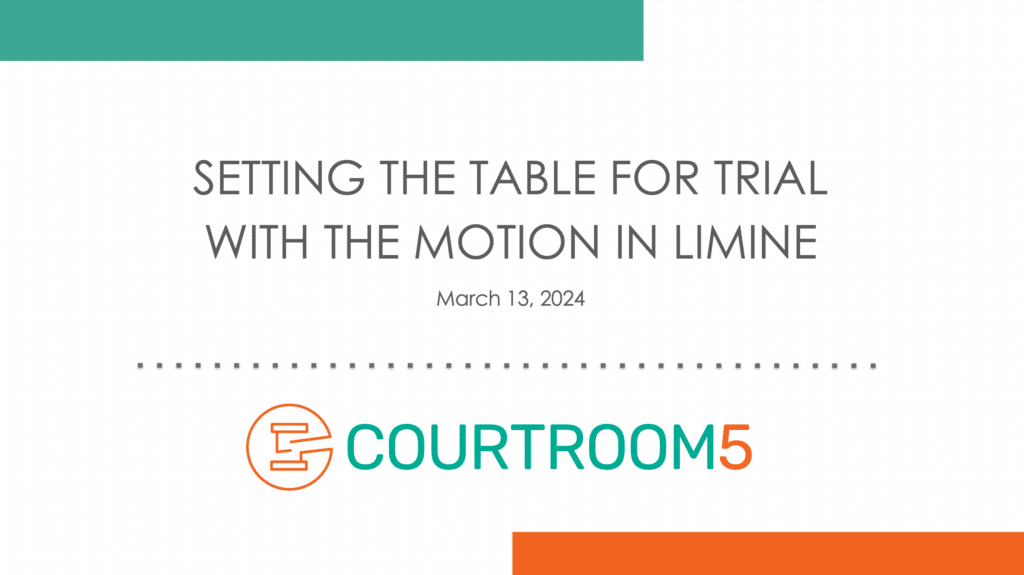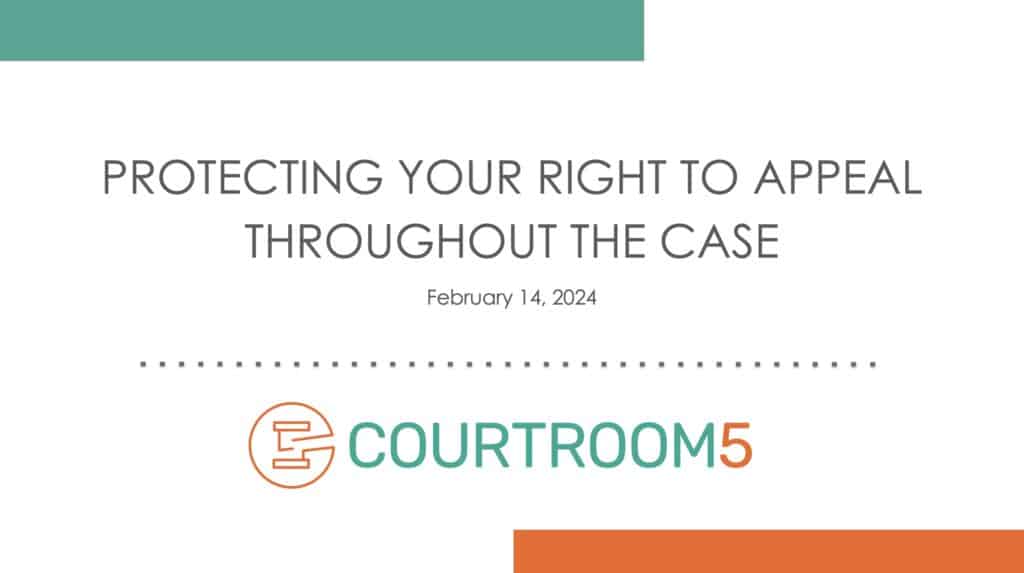Building Community
You asked; we delivered. This month, we’ll discuss the value of Building Community and introduce Courtroom5’s new pro se community. Get early access to a space dedicated to the pro se experience and the Personal Practice of Law. You’ll set up your profile so others can find and connect with you, choose your notifications, explore the various features and posts, and announce your presence with a post of your own.
Building Community Read More »

